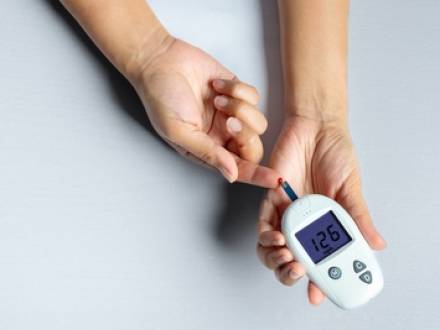Principal Office Located at 1424 Gables Court, Plano, TX 75075
Call Today For a Free Case Evaluation
Can Having Diabetes Qualify You for SSDI Benefits?
 Having diabetes does not necessarily qualify you for Social Security Disability Insurance (SSDI) benefits. According to the Social Security Administration (SSA), your diabetes must cause a severe enough condition to affect your ability to work. If you have diabetes, you may have complications that could qualify you. An experienced Plano, TX SSDI attorney can help you understand how the evaluation guidelines apply to your case.
Having diabetes does not necessarily qualify you for Social Security Disability Insurance (SSDI) benefits. According to the Social Security Administration (SSA), your diabetes must cause a severe enough condition to affect your ability to work. If you have diabetes, you may have complications that could qualify you. An experienced Plano, TX SSDI attorney can help you understand how the evaluation guidelines apply to your case.
What Are the Eligibility Requirements for SSDI Benefits?
To qualify for SSDI, you must meet both the medical and work requirements. Medically, you must have a severe condition that prevents you from working for at least 12 months. Terminal conditions also qualify. The SSA will evaluate whether your condition matches or equals one listed in the Disability Evaluation Under Social Security, commonly known as the SSA Blue Book.
For the work requirements, you need enough work credits through Social Security taxes. These vary based on age. For most adults, you should have worked for at least five of the last ten years. Additionally, you cannot engage in "substantial gainful activity." This means you cannot earn over a set monthly amount.
What Diabetes Complications May Qualify as a Disability?
The primary complication for both Type 1 and Type 2 diabetes is hyperglycemia. Chronic hyperglycemia can lead to serious complications that may result in disabilities. Conditions related to diabetes and found in the SSA Blue Book include:
-
Diabetic retinopathy: Diabetic retinopathy is listed under Special Senses and Speech impairments. The condition occurs when damage to blood vessels in the eye causes vision loss or blindness over time.
-
Diabetic neuropathy: Diabetic neuropathy is evaluated under the Neurological Disorders listing. It causes permanent nerve damage and loss of sensation in various areas of the body.
-
Cardiovascular disease: Several heart-related diseases are found under Cardiovascular System listings. Conditions like hypertension, heart failure, and coronary artery disease are debilitating and common for people with diabetes.
-
Diabetic nephropathy: Diabetic nephropathy is found under the Genitourinary Disorders listings. It refers to kidney damage that often causes renal disease.
Complications from diabetes fall under several sections of the SSA Blue Book for qualifying impairments. Digestive issues like gastroparesis or some bowel diseases are listed and can result from diabetes. Even skin disorders like slow-healing fungal infections could qualify you. If you have one or more listed complications, talk to an experienced SSDI attorney.
What Evidence Is Required To Prove That You Qualify for SSDI Benefits?
Part II of the Blue Book outlines the evidence required for determining SSDI eligibility. By law, the SSA needs clear medical proof from qualified medical professionals to confirm that a person has a real, diagnosable condition. The proof includes medical records, statements from treating physicians, and objective medical evidence, which can include clinical findings and test results, like lab work or X-rays.
Your proof must demonstrate how your condition affects your ability to function. Are you able to sit, stand, walk, lift, carry, and perform other physical activities? Does your condition impact your ability to concentrate, understand, and complete tasks? Every listing within the Blue Book details specific criteria that must be met and the type of evidence needed to satisfy that listing.
Schedule Your Free Consultation With a Collin County, TX SSDI Attorney
With over 60 years of combined experience, the Dallas, TX SSDI lawyers at The Law Offices of Coats & Todd bring knowledge and dedication to every case. Let us help you get the financial assistance you need. Contact us at 972-671-9922 today to learn more about disability benefits for people with diabetes.

 972-671-9922
972-671-9922





